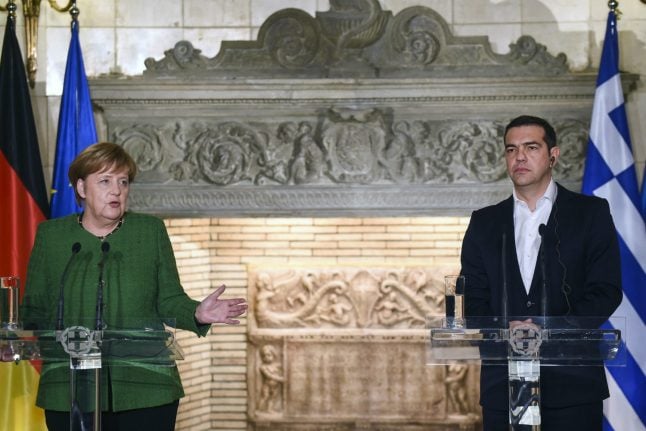Employees at the Hellenic Telecom Organisation (OTE) went on a one-day strike and were among 3,000 protesters who demonstrated in front of the Greek Labour Ministry after the deal drew heavy criticism of government privatisation plans.
The state inter-ministerial privatisation committee’s approval on Wednesday of the OTE deal sparked anger especially among left-wing opposition movement Pasok. DT already controls around 20 percent of OTE.
Unions denounced the accord as “a national crime” and called for a 24-hour strike on Thursday against what they termed “the liquidation of the group.”
The Greek government, which has a 28-percent stake in OTE, is expected to sell a three-percent share to DT for €442.3 million ($685 million), Economy Minister George Alogoskoufis told a press conference.
Deutsche Telekom is also expected to acquire a two percent interest in the group through the stock market.
Greek authorities have for years sought a “strategic European investor” for OTE, the largest telecom operator in the Balkans with operations in Albania, Bulgaria, Macedonia and Serbia.
Vassilis Kararizos, an analyst with the financial group Proton Securities, said the tie-up with DT was unlikely to lead to major personnel changes at OTE, notably after the voluntary departure of 6,000 employees two years ago.
But the deal has nonetheless triggered sharp criticism from the left. A Pasok spokesman on Wednesday described it as “one of the darkest days in Greek
history.”



 Please whitelist us to continue reading.
Please whitelist us to continue reading.